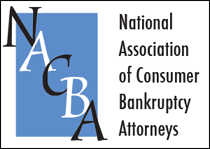
If you need more than debt consolidation, debt relief, or debt negotiation, you should consider filing for bankruptcy. In several cases, this is the best solution to eliminate your debt. There are two main types of bankruptcies, including Chapter 7 and Chapter 13. It can be tricky to determine which one is best for your personal situation. Each has different rules in terms of income, assets, debts, and outcomes.
Chapter 7 bankruptcy is a liquidation program. It is designed to clear your general debt, including unsecured loans from credit cards and medical bills. If your current monthly income exceeds the income limitations for your household size, you may not be eligible. Although each state has different stipulations, you must have little or no disposable income to qualify for Chapter 13 bankruptcy. In order words, if you make too much money, Chapter 13 bankruptcy may be your only option.
If you do qualify for Chapter 7 bankruptcy, a bankruptcy trustee will be appointed to your case. You will be forced to sell your nonexempt property in order to pay off your debt. Your trustee will determine how much you owe after reviewing your paperwork. However, if you do not have any nonexempt property to sell, then the creditors, lenders, and collection agencies will not receive any payment from you. If you have a low income with little or no assets, and want to get rid of your debt, Chapter 7 bankruptcy is ideal for your situation.
Unlike Chapter 7 bankruptcy, Chapter 13 is a way for you to repay your debts. It is an organized, court-ordered structure that will allow you to use your regular income for payment. You may be eligible to pay back only a portion of your debt, rather than the full amount. In certain cases, like your monthly income, you may have no choice but to file for Chapter 13 bankruptcy.
However, Chapter 13 bankruptcy has several more benefits compared to Chapter 7. You will have the ability to make missed car or mortgage payments. You are also able to keep both exempt and non-exempt property. With advantages like these, Chapter 13 bankruptcy is commonly known as a reorganization bankruptcy. You will have to option to catch up on missed payments and pay off other debt, rather than giving up your belongings.
Here are some key differences between Chapter 7 bankruptcy and Chapter 13 bankruptcy:
- Chapter 7 bankruptcy is used if you have little property and few possessions beyond the standard necessities like clothing or furniture. Likewise, if you have little or no money after paying your basic monthly expenses, you will generally qualify.
- Chapter 13 bankruptcy is used if you have home equity and property you want to keep. You have a regular income and cannot keep up with scheduled payments, but have enough money to calculate structured payments that will allow you to catch up.
- Chapter 7 bankruptcy will virtually eliminate your unsecured loans, which may be completed within a few months. Creditors, lenders, and collections agencies must stop contacting you after filing for Chapter 7 bankruptcy.
- Chapter 13 bankruptcy allows you to keep your property as you make payments on past due accounts. You have ample time to catch up on delinquent bills (3-5 years) while your bankruptcy trustee works with you. Creditors, lenders, and collection agencies can no longer contact you while you are making one monthly payment, which is distributed evenly throughout your debts. Further, your co-signer is protected if you file for Chapter 13 bankruptcy.
You must take a means test to determine if you qualify for Chapter 7 bankruptcy. This test will calculate if you have the financial means to repay your debt.
If you are still unsure if you should file for Chapter 7 bankruptcy or Chapter 13 bankruptcy, you should contact your attorney. Your lawyer will be able to analyze your specific situation and offer guidance, not to mention help with all of the files and paperwork. Each debt situation is unique, so what is good for someone else may not be ideal in your situation.
Although it costs money to hire an attorney, it will help you in the long run. Despite your overwhelming debt, you can have hope for the future. You can live a debt-free life thanks to Chapter 7 or Chapter 13 bankruptcy. You should not feel ashamed or embarrassed to call a bankruptcy lawyer. After all, millions of Americans are in debt.

